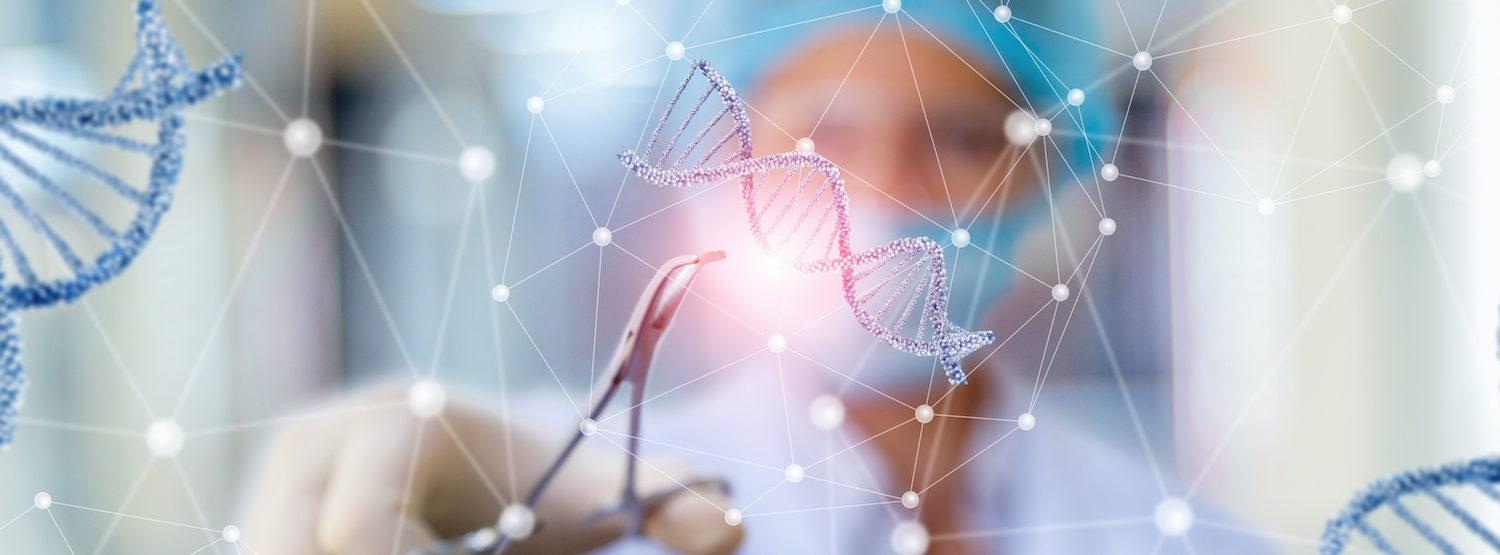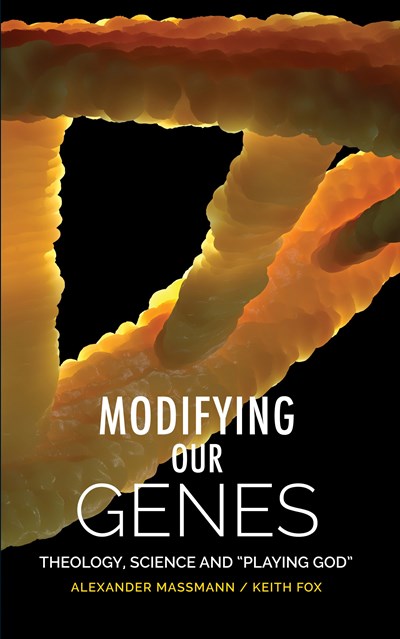
Shutterstock
In November 2018, a Chinese scientist made headline news across the world. At an otherwise routine meeting of specialists, the otherwise little-known Dr He made an unprecedented announcement: he had modified the DNA of human embryos, which he then implanted in two women, leading to successful pregnancies and the birth of two babies. The technique involved is called genome editing, which makes use of a relatively new piece of technology known as CRISPR-Cas9. The goal of the procedure was to make the children resistant to infection by HIV. Although the results have not been properly scrutinized and published, the procedure raised many profound ethical and legal questions, for which many people were unprepared.
Researchers have quickly taken up CRISPR-Cas9 as an experimental tool, which they use on cells grown in the laboratory. However, many scientists had already called for a moratorium on the use of this tool on human embryos. Some of their concerns were about issues of safety and risk, though the genetically modified babies raised many other questions about whether we should be tinkering with human genetics. In many countries across the world, bringing about a pregnancy with a modified embryo is illegal. However, some people see this as the start of a bright new future for the use of genome editing in humans. What should we think about such procedures, and should laws be changed?…
Genetic engineering has been with us since the 1970s, for example allowing us to produce insulin for treating diabetes and to make plants more resistant to drought and disease. However, the new genetic editing tool, CRISPR, allows researchers to rearrange the genetic material with an ease and precision that makes traditional genetic engineering look clumsy and time consuming…The application of CRISPR-Cas9 to human biology has brought important ethical questions to the fore…
For centuries, medical practitioners have sought to treat diseases and to alleviate some of the pain and suffering that is inherent in nature…The mere fact that scientists modify DNA, rather than something else, cannot be a sufficient criterion for deciding between good or bad interventions. When the twentieth-century theologian Karl Barth addressed health and illness as part of his wider discussion of God’s work in creation, he emphasized that Christians must resolve to pursue health and not to accept disease too lightly, with a misplaced faith that legitimizes all reality as the will of the creator. Rather, he asserted that the creator intended a full measure of life for each creature. And so, medical treatments and care for the sick have been a distinctive part of Christian action since the very early centuries…
The most pressing question, however, is whether to allow the genetic modification of a human embryo in order to implant it, so that the mother would carry the child to term. This is what the Chinese researcher did – though he is now serving a three-year prison sentence with a large fine. Many countries have laws that forbid pregnancies with genetically modified embryos. However, if the tools for modifying embryos can be refined, then this would provide a much more powerful procedure than modifying the genes of children or adults. For example, if a child already has cystic fibrosis, then genome editing would need to modify a lot of cells to initiate a cure, and this may be technically unrealistic. However, by modifying the few cells of an embryo, this heritable disease would be completely removed from the individual, and the condition would not be passed on to further generations. Many people see this as a persuasive reason for changing the existing laws on genetically modifying embryos….
It is important…to bring the rich heritage of biblical traditions to the table, which can shed light on moral questions. For example, Jesus’ healing ministry reminds us of the importance of physical integrity – a heritage that has contributed significantly to wider Western culture. At the same time, in the writings of the Apostle Paul, we see the will to carve out a meaningful life when faced with abiding physical challenges…People with disabilities have repeatedly been told that a ‘cure’ for their particular impairments is just around the corner. If we concentrate on the medical possibilities of genome editing, are we also going to treat disabilities as if they were merely medical problems to be fixed? Would we then fail to respect how people with disabilities identify with their conditions, and regard them as alternative and equally valid ways of living? Theologians have long argued about a remark by the Apostle Paul that he had a ‘thorn in the flesh’ – presumably a reference to a debilitating ailment – but this has something important to contribute here, as he saw that God’s ‘power is made perfect in weakness’. What seems like disease and weakness to some can in fact include significant strengths and opportunities for others. Here, we all need to learn from people with ‘disability’, and not simply to think of these as weaknesses…we have to ask what the significance of medical treatments is for those who suffer from disease – and how does disability differ from illness?
What about genome editing for those who are healthy? Should we even consider the possibility of ‘improving’ the capabilities of healthy people, for example, by raising intelligence through a genetic modification?…The idea of enhancements produces an immediate negative reaction for many people, though others ask why genetic ‘improvements’ should be forbidden, especially when we already use non-medical ‘enhancements’ such as private academic tutoring…The ancient theologian Irenaeus of Lyon is sometimes quoted as saying that ‘the glory of God is the human person fully alive’. If that is so, would not a more powerful human body, living life more fully, be better from a faith perspective, too? Others argue that if humans are ‘created in the image of God’, then we might be called to take practical steps in an ongoing, positive form of cooperation with God the creator…This brings the important issue of eugenics up for discussion…It may not require a Nazi worldview for eugenics to be morally wrong…[and] many eugenic suggestions are typically bad science…
In a recent contribution to this debate, one theologian argued that God has already created us in a way that makes us well-suited for relationship with God and our neighbour. Whatever other shortcomings one may still find, enhancements will not provide any benefit in this regard. When looked at in this way, even a genetically ‘improved’ memory would not alter our relationship with God or make life any better in this context.Creation ‘in the image of God’ then means that any such ‘improvements’ are no longer necessary. On the contrary, by focusing on them we might miss the fundamental dignity that is already inherent in the human condition. Judged by theological standards, the suggestion that enhancements are unnecessary should not be surprising. The New Testament notoriously disrupts our common values: God chose to reveal himself in the misery of a victim of torture (1 Cor. 1), and in tending to the vulnerable, we encounter Christ in them (Matt. 25). There may be an unexpected strength in shared vulnerability that protests against our tendency to exclude those at the margins…
The theological assertion about vulnerability raises an interesting question: are the promises of a more meaningful life through genetic enhancements realistic? Are there clues in other disciplines, ranging from literature to economic theory and psychology, as to whether ‘more’ really is ‘better’?…These are profound questions! We should not hide from such difficult topics, for genome editing is a transformative technology that may change medicine – and perhaps even the way we think about our bodies.
 This article is a series of excerpts from Modifying Our Genes: Theology, Science and “Playing God” by Alexander Massmann and Keith Fox (SCM Press, 2021), by permission of the authors. Order from SCM Press, or this book will be made available at a reduced price from the Faraday Institute online shop when available.
This article is a series of excerpts from Modifying Our Genes: Theology, Science and “Playing God” by Alexander Massmann and Keith Fox (SCM Press, 2021), by permission of the authors. Order from SCM Press, or this book will be made available at a reduced price from the Faraday Institute online shop when available.
Further resources
Briefing: The opportunities and challenges of CRISPR gene editing (and what is it?)




